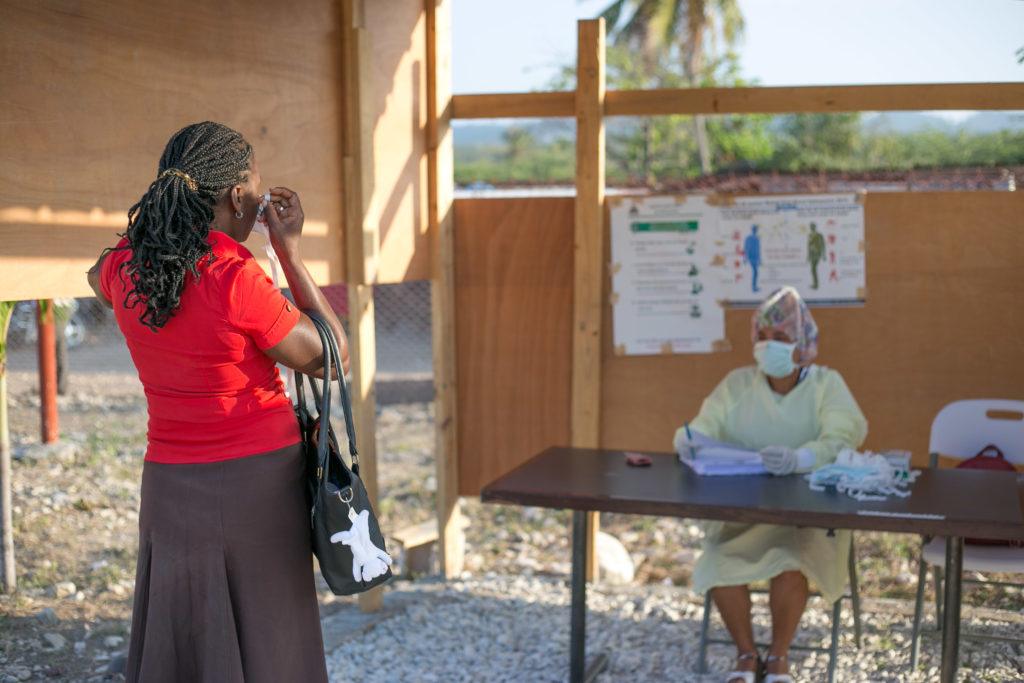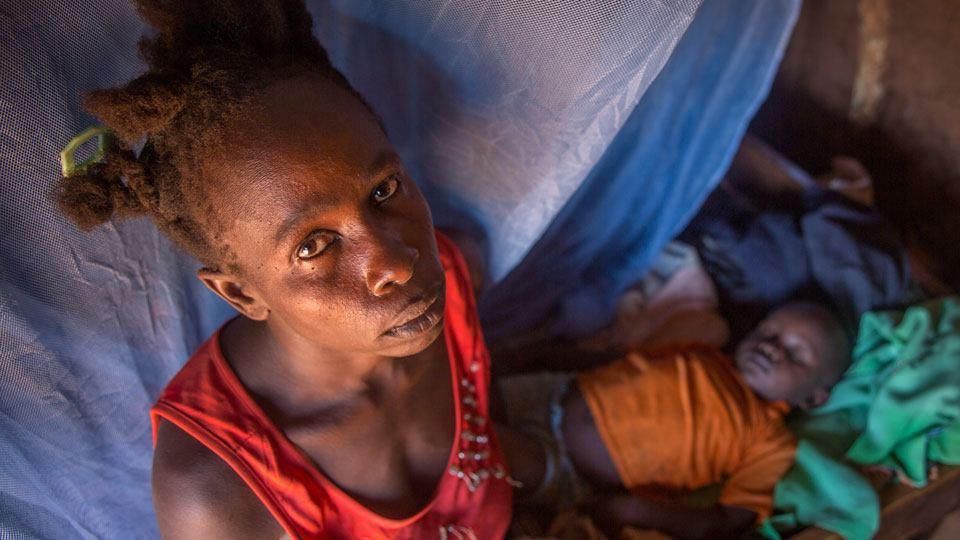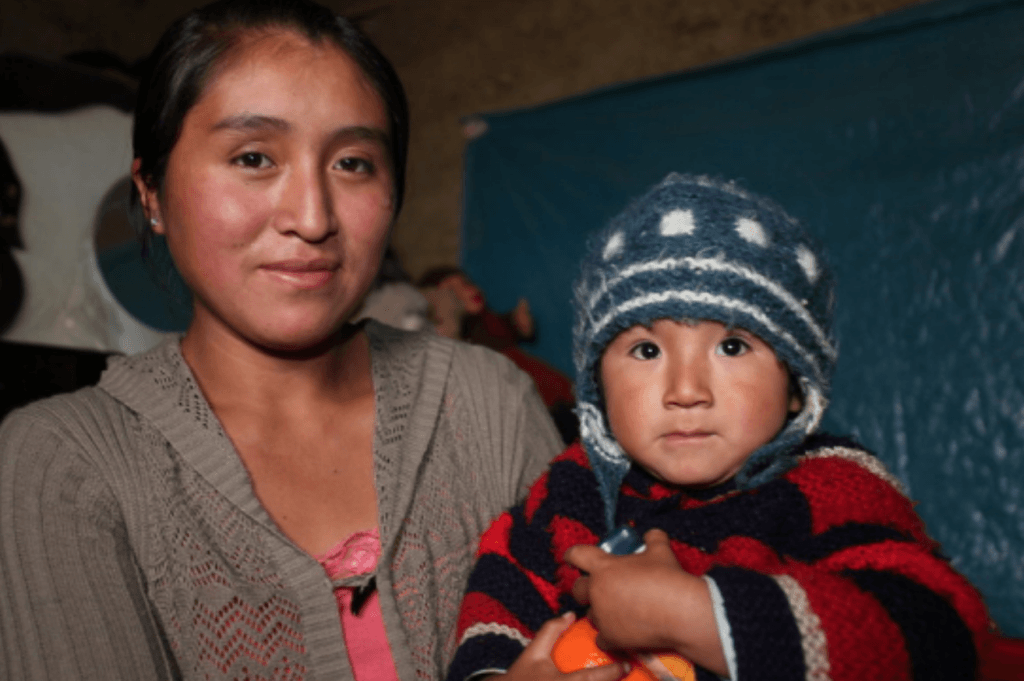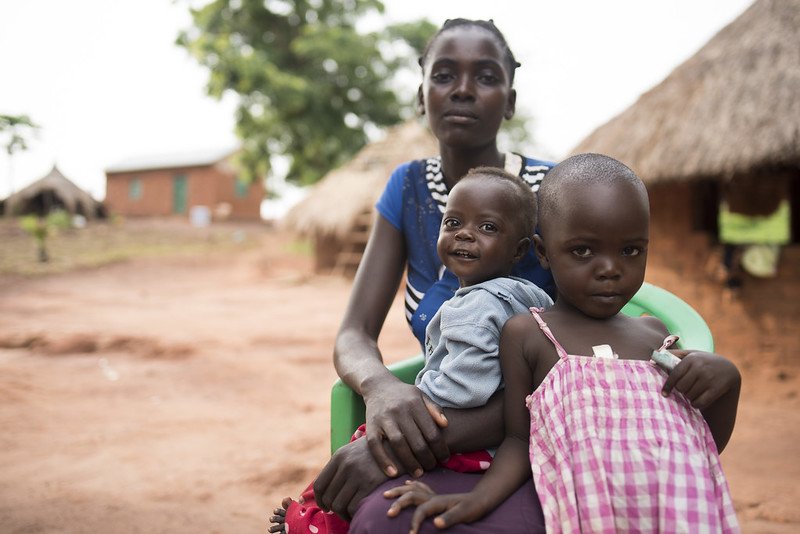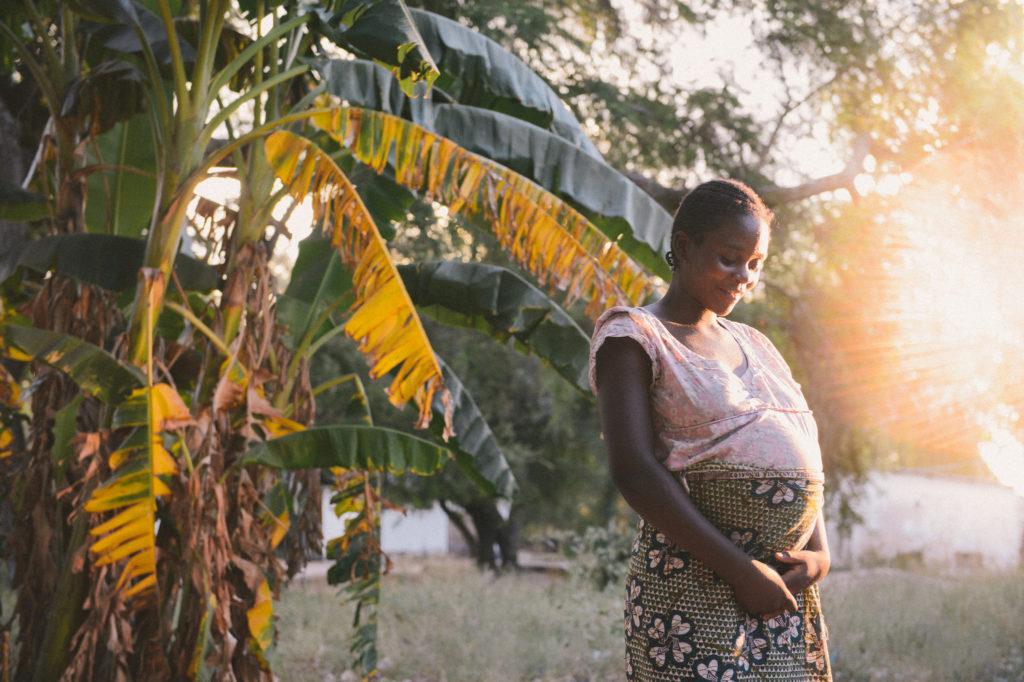COVID-19 Situation Report – July 2020
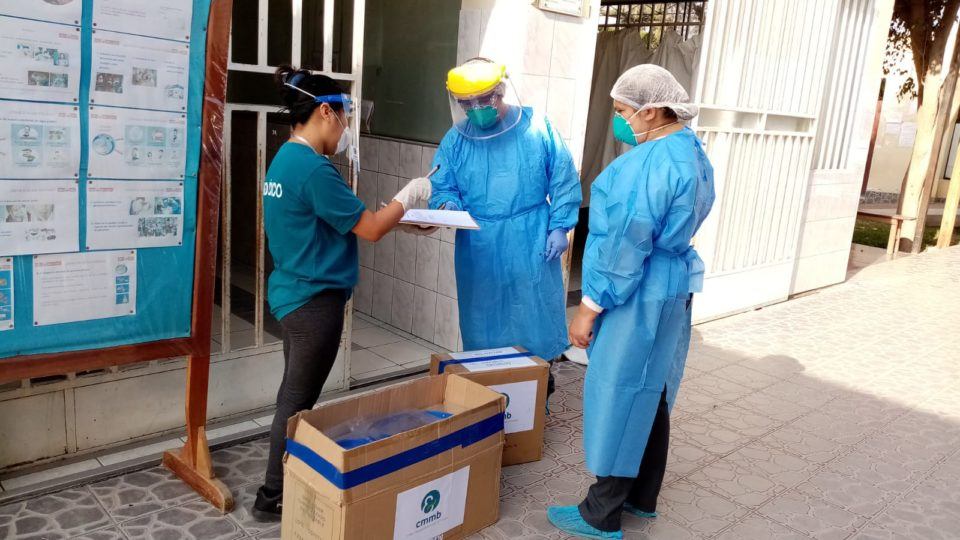
In an effort to share updates on our global response to COVID-19, CMMB is issuing regular Situation Reports on our five country offices. Here you will find the third report, published on July 20th, 2020.
The New Normal: Delivering on Mission Amid COVID-19 Containment Measures
THE PANDEMIC ACCELERATES IN CMMB COUNTRIES
COVID-19 has taken hold, and restrictions on movement and gathering size have critically challenged ongoing projects. Awareness of the disease drives stigma, and many families have stopped seeking lifesaving healthcare—some fearing exposure to the virus, some not wishing for others to assume them sick. But delays in care-seeking cost lives, so our challenge is to urgently promote and sustain proven lifesaving antenatal care, child immunization, and antiretroviral therapy while protecting families and health workers from COVD-19 infection. In this COVID era, our activities have done double duty to provide platforms for COVID-19 messaging.
RECENT WORK IN CMMB’S COVID-19 RESPONSE
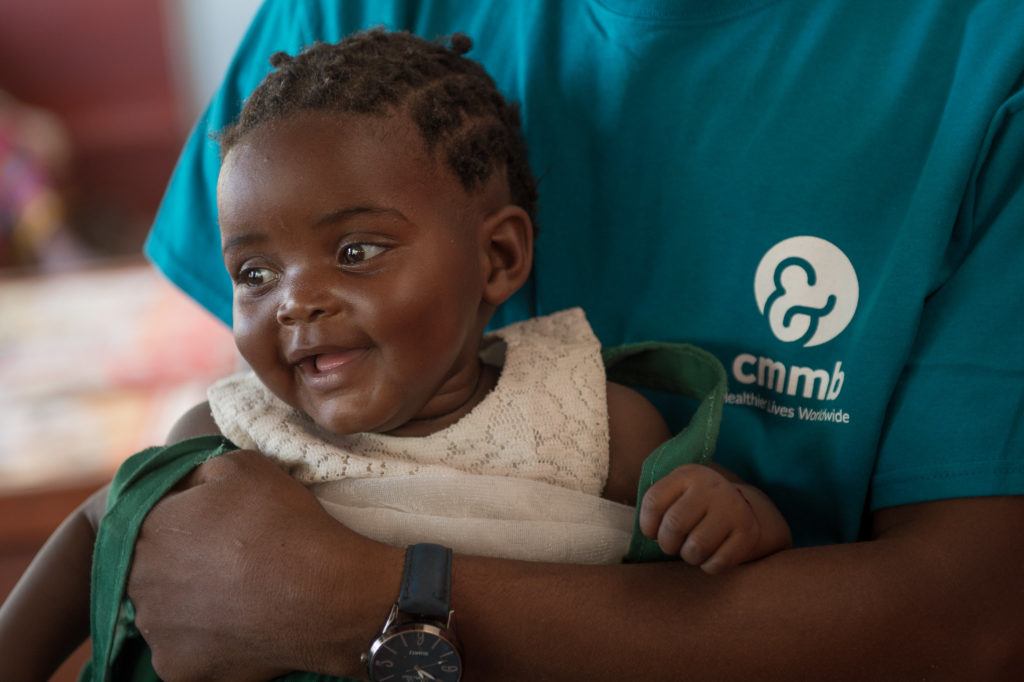 CMMB community health workers like this one in CMMB Zambia’s CHAMPS help families stay healthy.
CMMB community health workers like this one in CMMB Zambia’s CHAMPS help families stay healthy.
Protection
Globally, CMMB has focused intensively on ensuring that health workers have the personal protective equipment (PPE) and medical items that they need to work safely, without fear; our Distribution Center has been dispatching requested items, and resources have been deployed to country offices to make local purchases since March. Three weeks ago, an airlift from the United States to Yambio, via Juba, was completed with a load of needed supplies. On July 13, CMMB Haiti received a shipment of PPE and medical equipment. Shipments to CMMB Zambia (masks, soap, gloves, hand sanitizer) and CMMB Peru (N95 masks, thermometers, pulse oximeters) are out the door. CMMB Kenya has procured masks for staff as well as face masks, gloves, sanitizers, digital thermometers, and more, for healthcare providers.
Preparedness
Among many trainings over the past month was a presentation on COVID-19 infection in children (via Zoom, on July 16). CMMB Haiti’s Dr. Taina Brice and Dr. Syndie Saint-Hilaire, with CMMB’s maternal and child health expert, Dr. Claudia Llanten, covered prevalence, transmission risk, and complications like multisystem inflammatory syndrome in children (MIS-C). In country, we collaborate with government and community stakeholders toward a coordinated response; host countries we have worked with for years value our input.
Prevention
Lack of handwashing capacity at health facilities was a theme across CMMB long before the birth of the novel coronavirus. The high stakes of COVID-19 infection have galvanized work to fill this gap. Generous donors have stepped up to fund purchases of handwashing needs not only for hospitals, clinics, and dispensaries, but also for community gathering areas. Now that we have trained thousands of community health workers (CHWs) to sensitize families on handwashing as infection prevention, providing equipment to wash hands is critical.
CMMB HAITI: JOINING CDC IN HAITI’S RESPONSE TO COVID
Post lockdown reopening has begun—as of July, of industrial parks and churches; as of August, of schools and universities, with other public and private institutions at 60% capacity. Still, mask wearing is required in public; gatherings are limited to 50, and a midnight-to-4 a.m. curfew remains. Physical distancing is difficult in Port-au-Prince, the national COVID-19 epicenter. Large families crowd into tiny dwellings; isolating sick family members is impossible. Slowed remittances from abroad (a third of Haiti’s GDP) have hit impoverished Haitians hard. Many Haitians resist testing, distrusting authorities—could it be a fiction invented to snag foreign aid? COVID-19 denial is widespread, even as some report an epidemi lafyè (a fever epidemic), but no one calls it COVID-19. Skeptics seek care too late. Others, fearful, stay away because of stigma, impeding prevention. It is possible that Haiti’s general youthfulness, with just 4.5% of the population over 65, may mitigate COVID-19’s impact. But a bad hurricane season, forecast by some for late summer and fall, is more worrisome than usual.
Tapped by CDC Haiti
CMMB Haiti has been asked to support USG efforts to distribute PPE to contact tracers and surveillance officers; to provide logistics support to the Laboratoire National de Santé Publique (LNSP; national public health lab), Haiti’s reference center for the global COVID-19 surveillance system; and to target COVID-19 stigma by working through pastors, priests, voodoo practitioners, and other religious leaders in an extension of an ongoing initiative focused on minimizing HIV stigma. Meanwhile, that project relied on WhatsApp groups and social networks for messaging and awareness videos and in the upcoming year will deploy varied training methodologies, including virtual meetings and live ones with masks and social distancing.
CMMB KENYA: MAKING PROGRESS ON CANCER AND HIV
Rising numbers of confirmed cases make it clear that Kenyans are not using face masks, washing hands, social distancing, and avoiding crowds. It is not for lack of awareness; COVID-19 knowledge is universal. But misconceptions fueled by social media disrupt prevention activities; individuals fear stigmatization and avoid testing. Restrictions remain but are easing. But per CMMB Kenya country director James Kisia, MD, “Another lockdown is likely and may be much stricter.” Government is committed to contact tracing, isolation and quarantine protocols, and cutting lab turnaround times.
“Immunization in Kitui South Sub County exceeded targets, despite COVID-19. We achieved this by supporting local authorities to transport vaccines from Nairobi and providing gas to facilities to ensure that fridges ran optimally.” —Quarter 3 Report, Kenya CHAMPS Program 2019–2020
Nairobi and Mombasa account for nearly three quarters of cases (53% and 20%, respectively). But those who once came to cities to work, crowded into small dwellings in dense informal settlements, are returning to villages. Rural Kisumu, site of CMMB’s CHAMPS, has few cases now but expects more. CMMB, while supporting community protection, works diligently to advance existing projects.
Targeting Cancer in Women
While COVID-19 communication dominated airwaves, our Combating Cervical Cancer project, ongoing since 2017, did a quick pivot. Supplies needed for screening were stored as movement restrictions limited screening. Instead, SMS messages went to CHWs, integrating COVID-19 facts with cervical and breast cancer facts to share with beneficiaries. Other messages urged past clients to go for follow-up. With Bristol Myers Squibb Foundation funding, PPE enabled volunteers to safely visit homes to counsel and refer women. And thanks to earlier integration into maternal and child health services, every women presenting for any service was screened for breast cancer.
Working to End the Other Epidemic
Creative workarounds enabled CMMB’s new HIV project under Kenya Red Cross, to crank into gear. Planned sessions to promote adherence to antiretroviral therapy were moved outside, halved in size, and doubled in number, reaching 1,515 young people over six months. Originally we delivered evidence-based behavioral interventions apart from interventions to end sexual and gender-based violence (SGBV) and promote biomedical HIV prevention (e.g., testing, voluntary medical male circumcision); now, biomedical services promoted during behavioral sessions are offered at sessions’ end. Then, with group collegiality peaking, facilitators broach sensitive topics like SGBV. The result: The proportion of participants accessing all three interventions rose from zero after Q1 to 51.8% for Q2, ending June 30. Additionally, the project engaged and trained 327 more CHWs, who reached 6,627 people living with HIV with adherence and psychosocial support and nutrition-related health education.
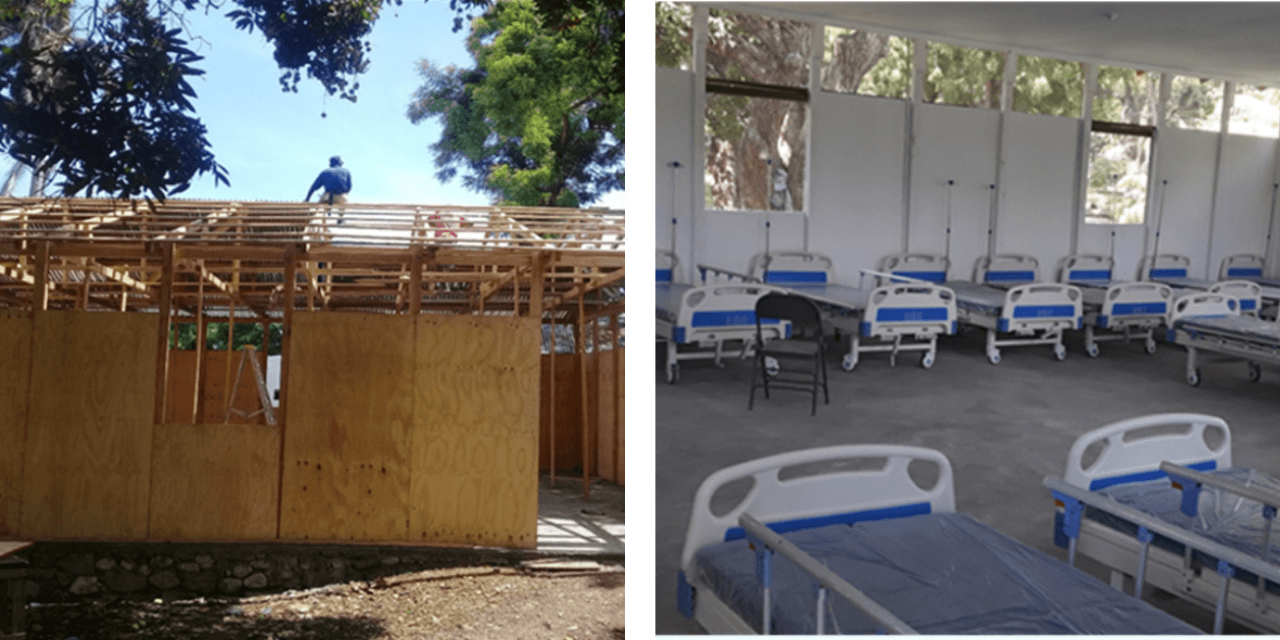
One of 164 sites in the USAID Santé network implemented by CMMB under Caris Foundation, northern Haiti’s Beraca Medical Center asked CMMB to support construction of a 40-bed facility to handle COVID-19 patients; it has been active since late June.
CMMB PERU: SUPPORTING FAMILIES DURING THE PANDEMIC
In Peru’s CHAMPS areas, widespread lockdowns have depressed incomes; malnutrition threatens hard-won CMMB gains against anemia in women and children. With support from Johnson & Johnson, Bon Secours Mercy Health, CMMB global, and diverse local supporters, CMMB Peru gave $40 to each of the 402 Thousand Days program families and $80 to each of 74 families living with children with disabilities—enough for ample groceries for each of these 476 families, who received no government support.
Despite having one of the world’s earliest and longest lockdowns, Peru has the world’s fifth largest burden of confirmed cases, the second greatest in Latin America, and the highest mortality ratio after the United States. Rising case numbers reflect the ubiquity of crowding. Large families crowd into small houses. Crowds fill public transport and markets, used daily by crowds of Peruvian poor, who lack both refrigerators and individual transport. Offering cash relief to offset lost incomes, government created crowds at banks, which those without accounts had to visit in person to retrieve funds. The lockdown is ending, but curfew continues.
The First Thousand Days
This longstanding maternal and child health project has spent the pandemic devising how to best support its families, replanning fieldwork (while retaining a comprehensive approach). Despite scarce resources, we proactively trained CHWs to educate families to stay safe and healthy. Materials were developed. Phone chains were established to keep community contacts robust. WhatsApp message groups were set up. Families were called to check in; to advise on stress relief; and to counsel on COVID-19 prevention and how to access government benefits. Building CHW knowledge on maternal, neonatal, and women’s health, continued via videos sent via cellphone. Virtual workshops addressed maternal and perinatal health. Dialogues with district health committees on service quality continued, virtually. In health facilities, trainings to build supervisory skills took place virtually. CHW visits are made with PPE. Over time, CMMB Peru has gained ground against moderate and severe anemia in children and pregnant women—the team is determined not just to maintain but to continue to improve increasingly vulnerable populations’ status.
“One thing is sure: Among staff and community health volunteers, there is huge dedication, preparedness, and flexibility. To respond to needs on the ground, the program stretched existing resources and found new ones. The staff has been good at switching gears—reflecting good training, good project leadership, and good relationships. Our areas have not had too many people in hospital—largely because of the work done by our teams.” —James Kisia, MD, Country Director, CMMB Kenya
Lifting Spirits
Johnson & Johnson–supported virtual workshops will strengthen the mental health of 120 healthcare providers for whom the pandemic has compounded job stress, overwork, anxiety, and fear.CMMB Peru’s Community-Based Rehabilitation project staff, observing caregivers being less responsive than usual to their exercises, mounted a family dance contest: Create create choreography or a dance involving the whole family and get moving. Participants’ happy consensus was that dancing beats back COVID blues. Parents remain grateful for CMMB support during quarantine. Parents share feelings and challenges and receive encouragement via video and phone calls. Fathers have been more involved.
Water, Sanitation, PPE
Bristol Myers Squibb and Mercy Health provided water tanks to three health facilities that had none. In a huge procurement, CMMB Peru provided PPE to 276 healthcare providers and disinfectant, hand sanitizer, bleach, paper towels, and soap to 17 facilities (12 at Huancayo, five at Trujillo). A second procurement of infrared thermometers, pulse oximeters, and blood pressure devices, plus 4,500 more N95 masks has been completed. At Huancayo health facilities, CMMB Peru supports double-triage spaces.
CMMB SOUTH SUDAN: STILL KEEPING MOTHERHOOD SAFE
Limited COVID-19 testing and stigmatization obscures the true magnitude of the epidemic here; the consensus asserts exponential growth and transmission in rural areas. Western Equatoria has seen five cases, but community deaths are not investigated and infrastructure to mount a robust response system is limited. CMMB works with the state-level taskforce, led by the State Ministry of Agriculture and WHO, to establish a COVID-19 case management center. Meanwhile, CMMB supports contact tracing, training, and resupplies of PPE for all facility staff. Social distancing is hard to maintain. People live in compounds with their extended families and to meet basic livelihood needs, go out daily, mostly without masks, to crowded places without handwashing facilities or sanitizers. Easing of government lockdown measures highlights the urgent imperative to mitigate hunger in a nation where 6.5 million people are severely food insecure—60% of the population.
Preventing Hunger
With World Food Programme and Unicef, we are prepositioning food down the supply chain to ensure its availability to families when they need it—routine ahead of every rainy season, now essential in anticipation of COVID-19 movement restrictions.
Gains against Maternal Mortality
Not only do we continue delivering safe motherhood services in Nzara and Ezo—we extended services to Lirangu, Yambio County, in January, deploying 17 midwives, nurses, and clinicians. Clinicians have been supported there and, with assistance from Sudan Relief Fund and African Mission Healthcare, at St. Therese Nzara Hospital. We raced to complete St. Therese’s new blood bank and center for comprehensive emergency obstetric and neonatal care (CEmONC), in collaboration with Australia’s Edmund Rice Foundation, even as the pandemic loomed. Also toward safe motherhood, CMMB’s Dr. Andruma Mustapha provided on-the-job training for both facility staff and boma health workers—including mentorship, coaching, and weekly continuing medical education.
Curing What We Can
For Nzara County’s rollout of the national Boma Health Initiative, CMMB supported CHWs to carry out household-level activities, including integrated community case management (iCCM) protocols to manage malaria, diarrhea, pneumonia, and other common, easily treated illnesses.
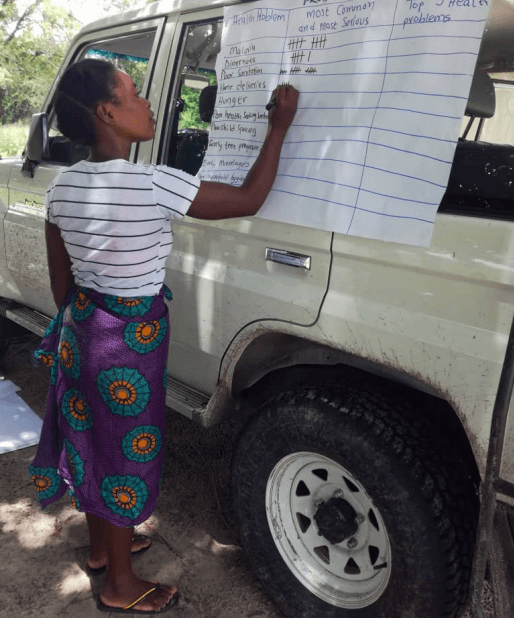
To prevent COVID-19 transmission, CHAMPS meetings are held outdoors. Here a community leader polls participants’ on local health needs. CHAMPS’ constant collaboration with district authorities and community members have positioned CMMB as an energetic, committed partner. The community leads. CMMB provides technical expertise, creativity, and kwacha
“CMMB created CHAMPS, but it is the community’s own agenda we implement. We know the context and we are engaged to improve indicators. We are headed somewhere, together, and we are going to have so much success.” —Mwauluka Mwauluka, CHAMPS Coordinator, Mwandi, Zambia
CMMB ZAMBIA: MAKING HEADWAY AGAINST HIV
Late March statutory measures and presidential directives have eased; schools reopened in June. Leadership and coordination structures have been put in place and surveillance heightened nationwide. Screening and contact tracing are flagging cases. In the wake of plummeting individual earnings, one-stop centers saw escalating complaints of sexual and gender-based violence.
End Violence against Women
Working to respond, CMMB’s Prevent! Sexual and Gender-Based Violence project in Northern Province wrestled with constraints on large gatherings. Participation in national and sub national events halted; distribution of bicycles to community dialogue facilitators stalled, as did national comprehensive sexuality education curriculum trainings slated for spring. But the project kept up the pace. We strengthened existing one-stop centers and community gender subcommittees and added new ones. Genderbased violence perpetrators were arrested, girls retrieved from early marriages.
Still Working to Prevent HIV
In the Zambia Community HIV Prevention Project (Z-CHPP), HIV testing, sensitizations, live radio, and savings group meetings continued. Outreach by lay counselors, peer educators, and economic strengthening volunteers taught the public how to stay healthy; change agents facilitated radio listening groups. We worked with village headmen and other community gatekeepers to alert people to HIV services, achieving 118% of annual targets despite the pandemic. Z-CHPP’s DREAMS component did take a hit with school closings as young women turned to risky behaviors to pass time. But DREAMS Safe Spaces stayed open, explaining COVID-19 prevention; staff held more activities sessions with fewer participants in each and used WhatsApp groups and social media to get prevention messaging out. All targets were met: By late June, DREAMS enrollment was at 63,706, 124% of annual targets.
We are proud to to continue serving women and children in the communities where we work during this time of need. We are grateful to our generous donors and partners who make this work possible.

